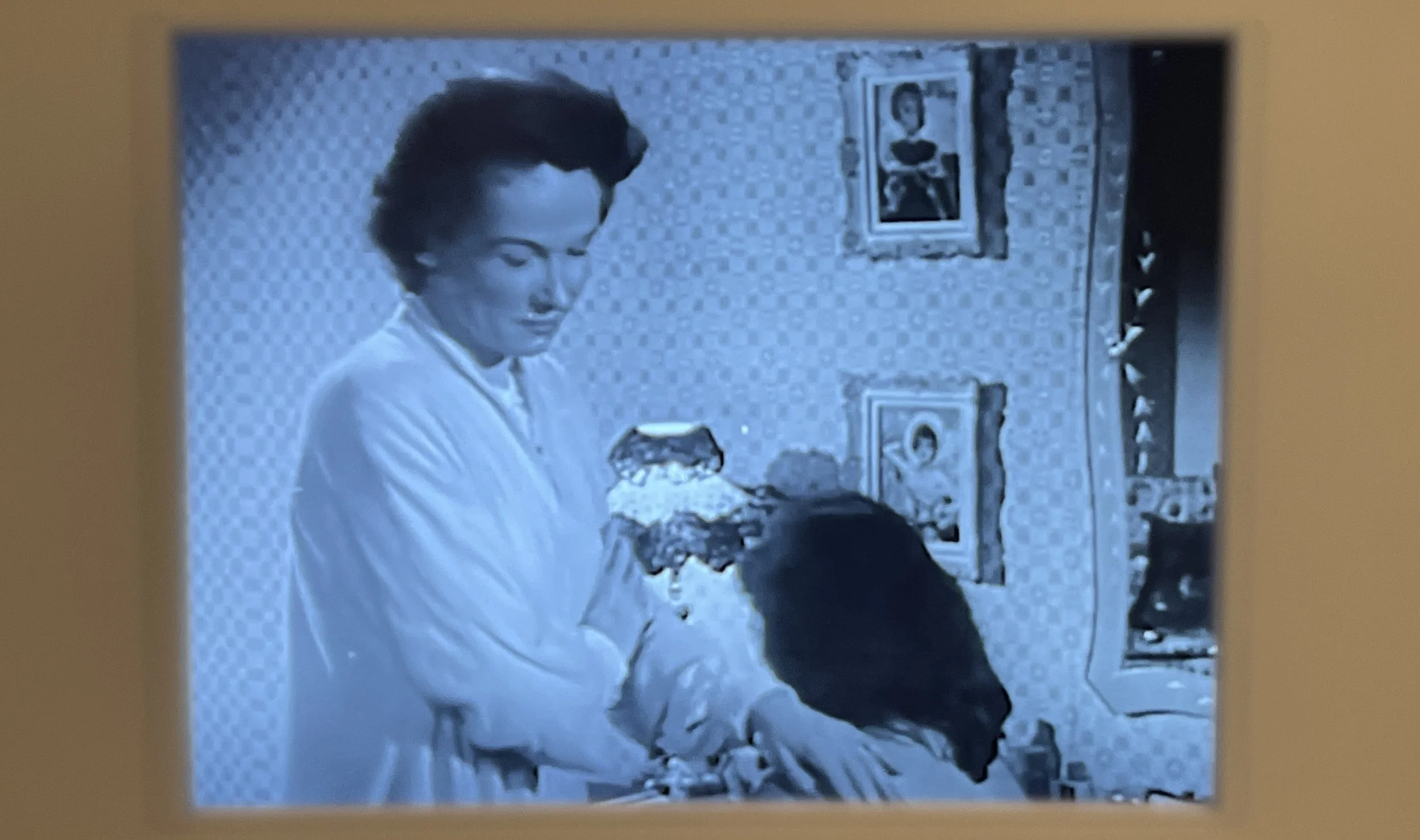Boyhood: It’s Complicated, Too
Girlhood: It’s Complicated was an exhibition on display at the Minnesota History Center that ended June 1, 2025.
Created by the National Museum of American History and the Smithsonian Institution Traveling Exhibition Service, it is supported by a program of the Smithsonian American Women’s History Museum.
This just in: It turns out the luxurious period of youth— or 18 years modern society has set aside to allow young people time to grow & mature into responsible adults— is fraught with high-stakes events upon which the fortune of their lives can turn. What’s most troublesome about these events is how they can be disguised as opportunities for fun, while simultaneously standing to make things very complicated for girls and boys alike.
A case in point is offered by an educational video titled How Much Affection? at the exhibit titled Girlhood: It’s Complicated at the Minnesota History Center.
In a 2 1/2 minute 1957 video vignette, a mother helps her daughter sort out issues of progessing intimacy in a relationship she has with a young man:
“First, well it all seems quite a lark. You like someone, he likes you. Everything is fun and affection,” she observes.
But then, one’s reason lapses, and “those fine thoughts of love and affection can get suddenly twisted,” the mother continues.
When the daughter perplexedly inquires about the appropriateness of feeling warm and affectionate toward someone she really likes, the mother responds it isn’t wrong since such feelings can be the basis for a happy marriage.
”But,” the mother replies, “if these strong feelings lead you into behaving unwisely, the outcome can be guilt and frustration. And these are the things that can spoil your chance of finding the very love that you’re looking for.”
The mother-daughter dialogue concludes with the mom advising her daughter to use “judgment” and to find a way “to make emotions work for you and not against you.”
Impaired Judgment of Problem Video Gamers
As the incidence of video-gaming problems contained in other posts & pages of this site suggest, romantic relationships are not the only life activity where people can have trouble with their emotions working against— not for— them.
The gamut of examples in which violent video gamers let their emotions get the best of them runs wide: from the problem gamer caught in a “compulsion loop” that brings them to neglect relationships & responsibilities to the completely desensitized & severely addicted gamer.
Just the same as two love interests whose reasoning ability is temporarily suspended, piqued gaming passion often seals off good judgment like the “love” drug and other mind-altering substances.
All too frequently, a depravity by degrees sets into the gamer that sees an abandonment of morals— like lying, hacking or theft on the ordinary end— to ill gotten gain (in support of the gaming habit), verbal abuse, comorbid drug use and threats or acts of bodily harm on the other end.
Consider the sad and tragic case of Joseph Voigt, who, in December 2024, made attempts on the lives of his parents Marvin and Susan [1] after they applied verbal pressure on their son partly because of his video gaming habit. While no particular game he played could be cited as a “sole cause,” the habit of gaming could have eroded his spiritual foundation to the point where Voigt became capable of committing such cold & heinous acts.
If this connection is too big a leap due to limited evidence, perhaps the reader would agree that making an attempt on the lives of one’s parents is an anger expression of the worst kind, and is so closely connected to the practice of violent video gaming, it is impossible to dismiss.
The “absolute” causal link many leading social science and political authorities insist on identifying before taking steps to stem gaming-associated violence is never going to be proven or disproven, folks.
In the meantime, while we remain in limbo for a conclusiveness that won’t ever arrive, the number of situations in which an overly passionate video gamer’s emotions "work against him” and those in his immediate vicinity, will continue to stack up.
Notes: [1] Father Marvin died from his injuries although mother Susan did not. Son Joseph pleaded guilty to second-degree murder and first-degree attempted murder April 7, 2025.
Source: people.com: “Gamer Killed His Dad, Wounded His Mom After Dad Told Him to Get a Job” published April 10, 2025. Written by Lesley Cosme Torres.


